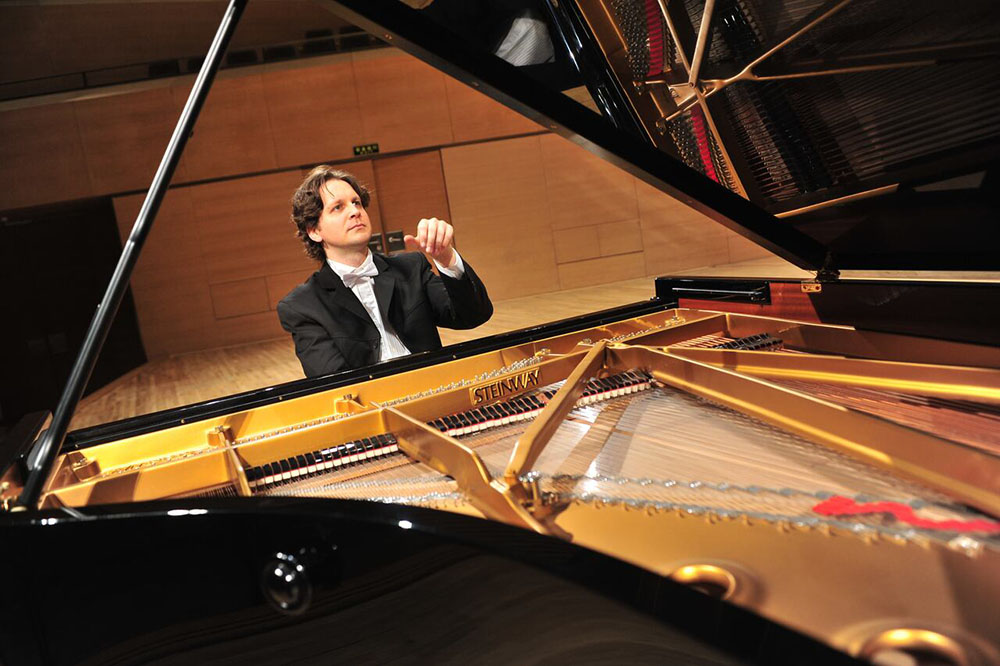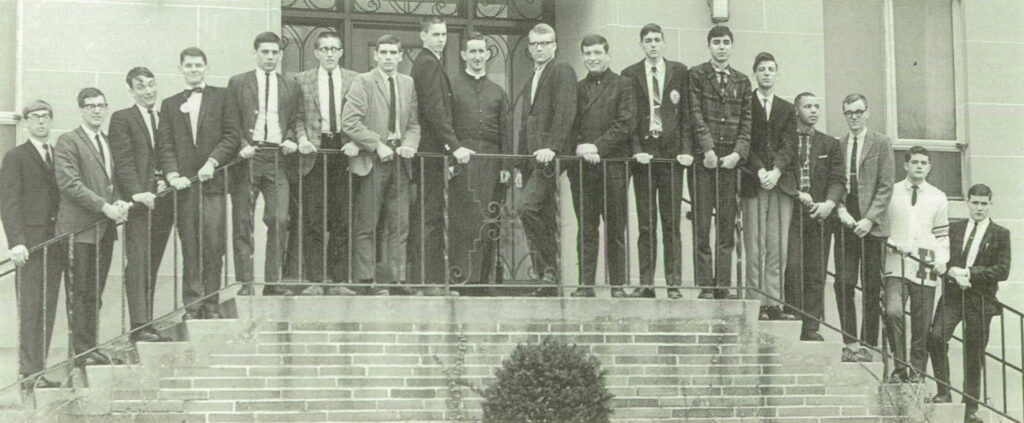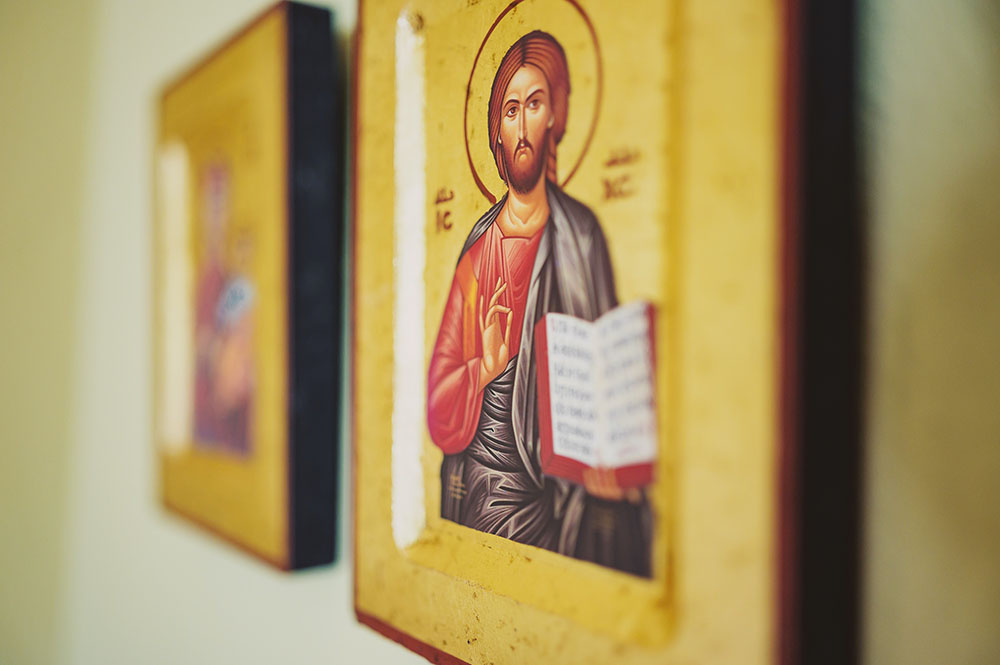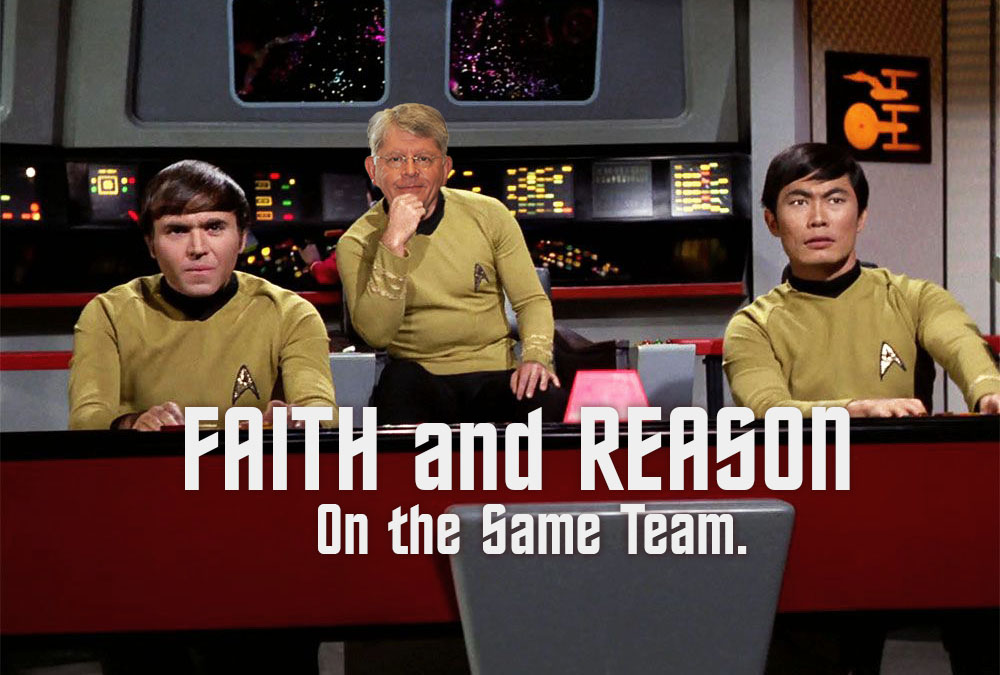
This gets a little complicated. Stay with me.
Who are you? This is a question that has many layers.
One level is simple. For example, I’m the child of Philip and Rosemary. I am a Catholic priest, pastor of Holy Trinity Parish, etc. The next level might get into one’s personality. (I’m an extravert, I like to talk. I enjoy golf and reading, music, and kidding around with Fr. John).
Going deeper someone might reveal their likes and dislikes (are you a Bills fan? Like to travel? Love your time alone?); deeper still, you could share your hopes and dreams for life. Lastly, one must share what they love and why.
Certainly we don’t go there when some stranger asks the innocent question, “who are you?”. These deeper levels of our personality we keep to ourselves or share only with those closest to us.
But there is another level of “who we are”. It’s who we THINK we are. And here is where we can develop a “False Self”. You see we all live in the world. We are affected by what we see around us. The culture in which we live has certain messages about what constitutes beauty, success, happiness, etc. And we are prey to this message. We want to be loved, admired and accepted.
So over time, we unconsciously develop an image of ourselves that tries to fit people’s expectations of success, beauty, etc. We all do it! It’s a hunger for acceptance and love from the very culture that can’t give us what we really need. (How many teenagers have been devastated by the mean comments from trollers on social media? How they look, what people are saying about them, etc.) We’re looking for an acceptance of who we are by creating a persona or mask we hope will satisfy.
Thomas Merton writes, “Alienation begins when culture divides me against myself, puts a mask on me, gives me a role I may or may not want to play. Alienation is complete when I become completely identified with my mask.” Literary Essays of Thomas Merton.
“This “mask person” is a person who cannot exist, because God doesn’t know anything about him.”
So who are you really? Merton goes on, “There is a paradox that lies in the very heart of human existence. It must be understood before any lasting happiness is possible in the soul of a man or woman. Man’s nature by itself can do little to solve our deepest questioning . . . because in the concrete order of things God gave man a nature that was ordered to a supernatural life. We are created with a soul to be perfected by Him in a way infinitely beyond human powers. We were never destined in God’s plan for a purely natural happiness.” The Seven Story Mountain (Merton).
Get all that?! For me it says, “God knows who I am. I don’t.” And to begin to plumb my mystery I must turn to God; not to social media or the passing fancy of the world. Because culture is in the same “think tank” as me about “The Mystery”.
And finally . . . God has given us His Son to show us who we are. To bring us to the fulfillment of our supernatural destiny. Read the Gospels. Every word recorded of Jesus in some way points to our adoption as Children of God.
St. Paul writes, “Beloved, we are God’s children now; what we shall be has not yet been revealed. We know that when it is revealed we shall be like him, for we shall see Him as He is.” 1 John 3:2 Get that. We shall BE like God!
Only prayer, persistent prayer, will enlighten us to the irrepeatable mystery God began when He created you and your True Self.
Bless You.
Fr. Tim










